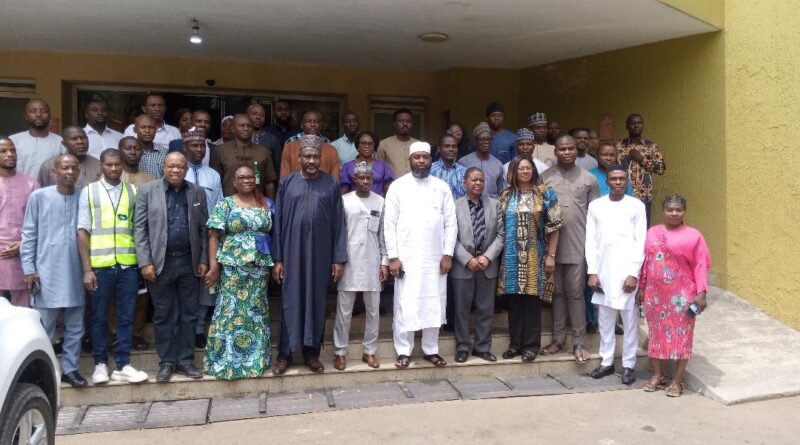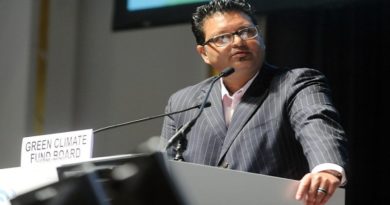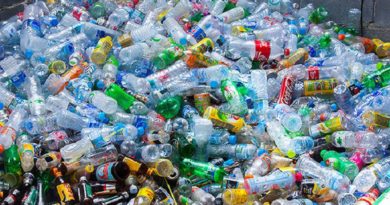Lead paint elimination: NESREA, SRADeV raise awareness for northern zone SMEs
Photo caption: Group photograph of participants at the lead paint reformulation and awareness raising programme for SMEs in the northern zone on Wednesday 3 April 2024 in Abuja.
As part of the ongoing National Small and Medium Enterprises (SMEs) lead paint reformulation and awareness programme on eliminating lead use in Nigerian paint towards the effective implementation of the appropriate regulation, the National Environmental Standards Regulation and Enforcement Agency (NESREA) in collaboration with the Sustainable Research and Action for Environmental Development (SRADeV Nigeria) on Wednesday 3 April 2024 organised a one-day regional awareness raising and capacity building workshop for SMEs in the northern zone of Nigeria.
The day-long workshop held in the nation’s capital, Abuja with the theme “Strengthening national capacity towards elimination of Lead paint in Nigeria” had in attendance SMEs paint manufacturers from the northern states including Niger, Kogi, Nasarawa, Kaduna, Plateau and FCT Abuja.
The current project initiative is under the auspices of the Lead Exposure Elimination Project (LEEP), an international non-governmental organization and a partner of the Global Alliance to Eliminate Lead Paint (GAELP) with interest in the conduct of lead paint studies to obtain country-specific data, support for governments in implementing lead paint regulations and provision of technical assistance to help paint manufacturers transition to lead-free.
In his opening remarks at the workshop, Director-General of NESREA, Prof. Aliyu Jauro, said that Lead is a highly toxic substance that poses severe health risks, especially to children.
He said that exposure to Lead could result in irreversible neurological damage, developmental disorders, and a host of other health complications.
Jauro said that the primary purpose of the workshop was to raise awareness on the dangers of leaded paints, safer alternatives and reformulation methods for SMEs across the country.
“Our mandate encompasses a wide range of activities, including the regulation of chemicals, waste, pollution control, and environmental impact assessment, among others.
“Today, we gathered here to address a pressing issue that directly affects the health and well-being of everybody, the elimination of lead paint,” he said.
He said NESREA had recently reviewed and gazetted the National Environmental (Chemicals and Pesticides) Regulations 2023.
“These regulations take into account emerging environmental concerns, including the presence of lead in paint.
“By doing so, we aim to strengthen the legal framework governing the production, importation, distribution, and use of paint in Nigeria,” he said.
“It is crucial to acknowledge that eliminating Lead from paint is not only possible but also imperative for a healthier and more sustainable future,” he said.
“NESREA and SRADEV Nigeria Lead Exposure Elimination Project, is fully committed to supporting all participants in this workshop in their journey towards achieving this goal,” he said.
In a keynote address, representative of Federal Ministry of Environment said in acknowledging that sound management of chemicals is a prerequisite to achieving sustainable development and in line with its mandate has been making concerted efforts to ensure the environmentally sound management of chemicals including lead for the protection of the populace.
“I must stress that lead is not needed in paint and increasingly countries including Nigeria are instituting lead paint laws to strictly control their use. One of the instruments that Nigeria has employed to regulate this is the Strategic Approach to International Chemicals Management (SAICM), a voluntary initiative adopted by the International Conference on Chemicals Management (ICCM) in Dubai in 2006 and aims to achieve the sound management of chemicals throughout their life cycle so that by 2020, chemicals are produced and used in ways that minimize significant adverse effects on the environment and human health”.
Executive Director SRADeV, Dr. Leslie Adogame, said the objective of the workshop was to raise awareness on the advances on lead paint elimination at the national level, increase understanding of the adverse health and economic impact of lead compounds, present the current status of lead paint standards in Nigeria and ongoing effort to review it, raise awareness on the gazetted regulation of lead paint in Nigeria and gain understanding that eliminating lead from paint is possible and that the project will support the participants in doing so.
He commended LEEP for the support and disclosed that the awareness raising workshop on Regulation and Standard on lead paint capacity development of SMEs across three geo-political zones will take place in Ibadan for South-West, Anambra for South-East and Abuja for North-Central.
In a goodwill message, Director-General of Niger State Environmental Protection Agency, Dr Abubakar Muhammad, said the state is concern about things that affect the environment. He added that the state has large number of paint depots.
Muhammad said the state is conducting environmental compliance on facility, production and to see the level of compliance. He commended the initiative of the project adding that the workshop is important.
Mr. Jude Maduka of Paint Manufacturer Association (PMA), said the informal sector has posed serious challenges to the SON in the monitoring and enforcement of existing paint standards adding that bringing all paint manufacturers/producers in the country under one umbrella for ease of identification has not been easy to achieve.
“The regulations should include locational addresses of the manufacturers and other important information about the paint on the packaging for easy of identification by the SON and buyers/users”, he said.




